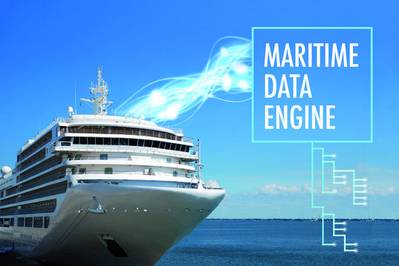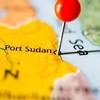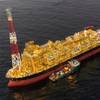INTERSCHALT maritime systems AG, the provider of maritime software and services, as well as the manufacturer of VDR systems, introduces the background application Maritime Data Engine (MDE).
Compared with previous systems, the MDE features two new innovations for on-board data collection:
1. All data from one or more ships of a fleet with different data structures, independent of the data source and deployed platform, will be normalized and quickly made usable.
2. The MDE is no proprietary stand-alone solution but an Industry 4.0 compatible network solution that makes realtime data available via the standardized OPC-UA interface for third-party system integration.
"The MDE fulfills the requirement necessary to tap into the data pool of ships as a part of business intelligence," explained Robert Gärtner, CEO of INTERSCHALT, underscoring the strategic importance of the new software. "By using the OPC-UA standard as part of Industry 4.0, the MDE has the potential to establish itself as a central interface for on-board system integration and is the ideal supplement to our VDR systems. Both products are in-house developments of INTERSCHALT and are optimally matched to one another."
The MDE expands the OPC-UA standard with dynamic components. When installed on-board a ship, it generates a normalized, current process image of the ship. If installed on land and if all ships in a fleet are networked via wide area connections, the MDE can provide the normalized process images of the fleet. This applies to both newly constructed ships and acquired ones too. Consequently, the cost-intensive development of various third-party solutions for each individual ship and various ship systems – such as for watertight doors or fire alarm systems – is eliminated.
In addition, the MDE offers further application possibilities specifically for passenger vessels, tankers and research ships, for which the standardized realtime provision of ship process data to third-party systems – whether to increase security or for use in research projects – is a necessity.
Each ship has a unique equipment configuration, posing the challenge of having to normalize the data for general and system-independent usage and optimize their further use. This applies both to an individual ship and an entire fleet. In many cases, each supplier installs his own system on board, resulting in a high level of effort – with regard to wiring, for example. "The compatible MDE can remedy this problem by creating an uniform and bundled data cloud from all areas of the ship, and allowing adaptation of both current and subsequently added equipment options", explains Gärtner. Previous solutions work on a proprietary basis, i.e. with their own, non-standardized protocols.
The OPC-UA standard also offers multi-layered security and authorization capabilities, so that the data is normalized with standardized interfaces and communications protocols from which the process image can be read, while still protecting against unauthorized access.
First customers from the cruise ship sector
The MDE is already in practical use. The first customers to take advantage are the shipping companies AIDA Cruises and Costa Crociere. The data from their ships is relayed via MDE for real-time monitoring in the new Fleet Operation Center of their joint Marine Operations Unit, Carnival Maritime, in Hamburg.
How to install it
If there is a wide area network connection to the ships of a fleet, the installation of the MDE can generally be performed remotely via satellite communications to an on-board server. In previous installations, the basic MDE was installed on-board by an INTERSCHALT technician in order to minimize risks in the network configuration, and because plausibility checks of the data to be collected and the data sources also had to be made. All other installations were performed remotely. The subsequent service contracts include product maintenance, software support, debugging and update service.













